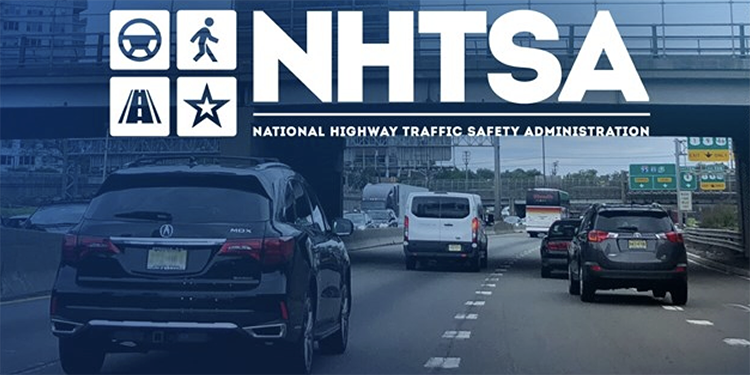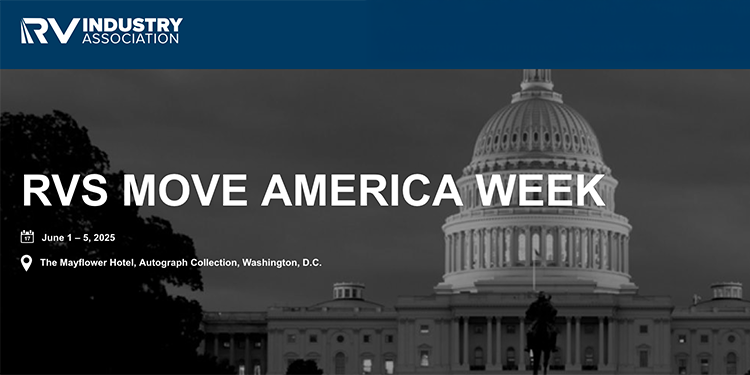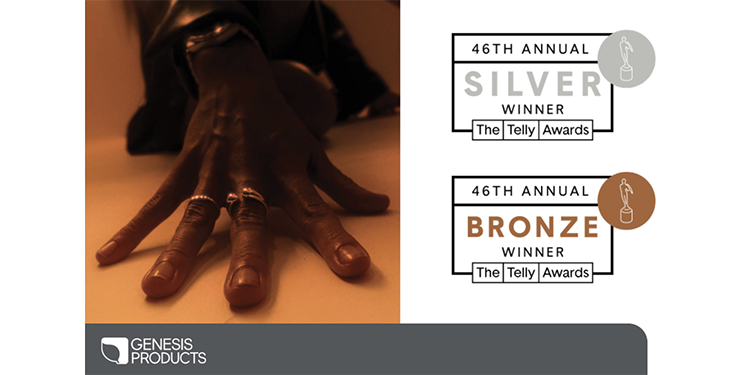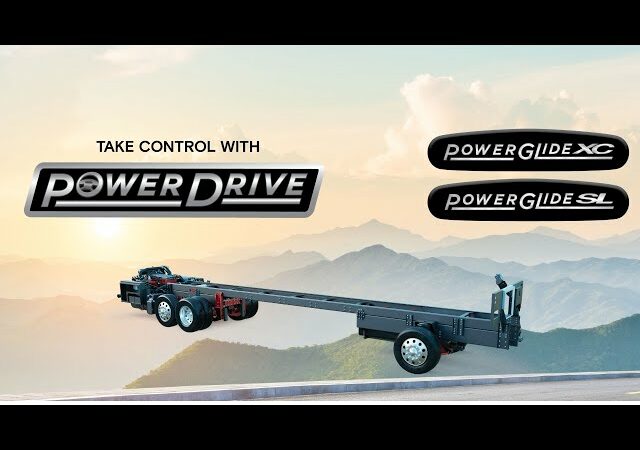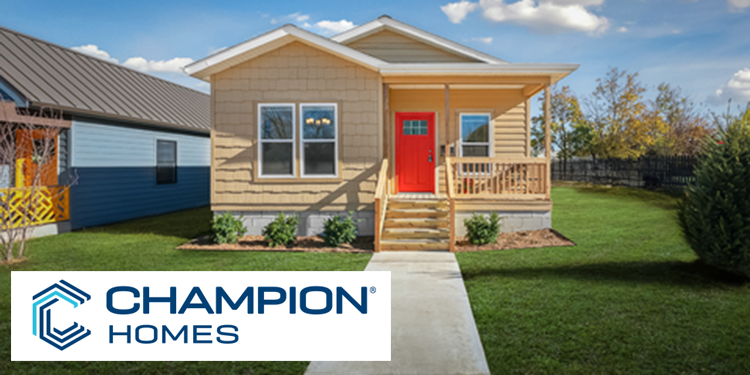Puglisis are Celebrating 10th Anniversary of ‘RV Atlas’ in 2024 – RVBusiness – Breaking RV Industry News
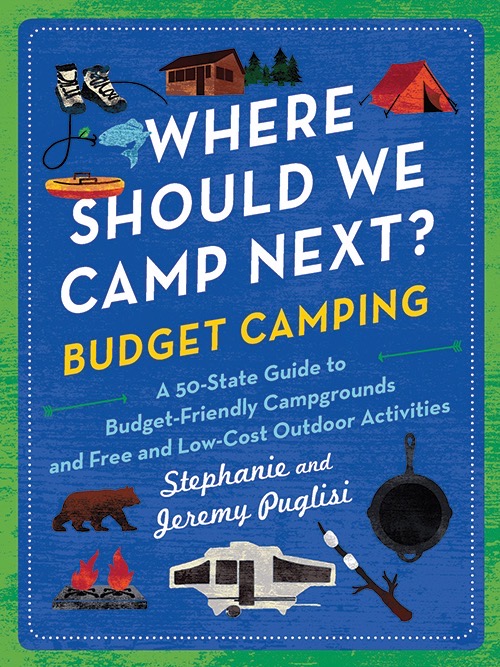
One of the longest running RV lifestyle podcasts is celebrating a milestone this year. RV Atlas, founded by Stephanie and Jeremy Puglisi, is marking its 10th anniversary in 2024.
Indeed, what began as a way for the young family to chronicle their adventures in a popup camper has transformed into nothing less than a formidable RV media enterprise for the New Jersey couple.
One of the secrets to their success is they never sought fame and fortune. Each week, they discuss a variety of RV- and camping-related topics – without any pretense, embellishment or manufactured drama. It’s all genuine and, in a truly organic way, it’s become one of today’s most popular RV lifestyle media brands.
In addition to their weekly podcast, the Puglisis are the authors of several books on the RV lifestyle, sought-after seminar speakers at RV shows and brand ambassadors for Go RVing and a handful of RV manufacturers and suppliers over the years.
Their first book was “The Idiot’s Guide to RV Vacations,” which has since been republished as simply “RV Vacations.” Following that, the two have written “See You at the Campground,” “Where Should We Camp Next? The 50 State Guide” – which just recently sold its 100,000th copy – and then “Where Should We Camp Next? National Parks Edition.”
Among other books in the works, “Where Should We Camp Next? Budget Camping Edition” will hit bookstores and online retailers April 2.
Recently, the Puglisis sat down with RVBusiness to talk about RV Atlas and its 10th anniversary. What follows is an edited account of that conversation.
RVB: It’s a great story, so please tell us how RV Atlas came about.
Stephanie: I think it’s not that uncommon for people to have the experience that we had. This was about 15 years ago now; we had our twin boys – who are now in high school – and they were little babies, and Jeremy and I were always big travelers. We were big road trippers. We were not RVers. Our extent of RVing had simply been as children having borrowed pop-up campers for camping trips, that type of thing.
And we just got it into our heads that an RV was going to solve all of the issues that we were experiencing as new parents. We couldn’t do any of the fun things that we love doing anymore. We had a couple of tremendously miserable hotel experiences – which we’ve talked about in the past and in our book, “See You at The Campground.” We got it in our head, and we went out – and it was our 10th wedding anniversary – so we bought ourselves a popup camper, and the rest is history.
Jeremy: I also have just have to add, I was very inspired by a Go RVing television commercial too, which is kind of cool because we’ve done a lot of work with Go RVing over the years. But I was watching a baseball game or something, and one of those very inspiring Go RVing commercials came on and I was like, ‘That’s what I want. That’s what I want to do with my kids.’
Stephanie: I think it was the one with a dad in a pop-up camper, and they were making fly fishing hooks or whatever with his son, and it was just like, ‘This is the answer.’ And it really was! It was the answer in so many ways. Our boys were 11 months old when we bought the popup. I think we camped 30 or 40 nights with them as babies that first year.
Jeremy: That was a big surprise to us. We were both teachers on teachers’ budgets, but we had the summer off. And what I think that we didn’t really totally realize until we started doing it was that it was so much more affordable to go on that RV vacation so that we could take more vacations as opposed to that one big trip. We were able to afford a couple big trips and weekends as well, because campgrounds were way more affordable. And that was another thing that I just kind of fell in love with the lifestyle, was that we could travel more than we would if we were staying in hotel rooms.
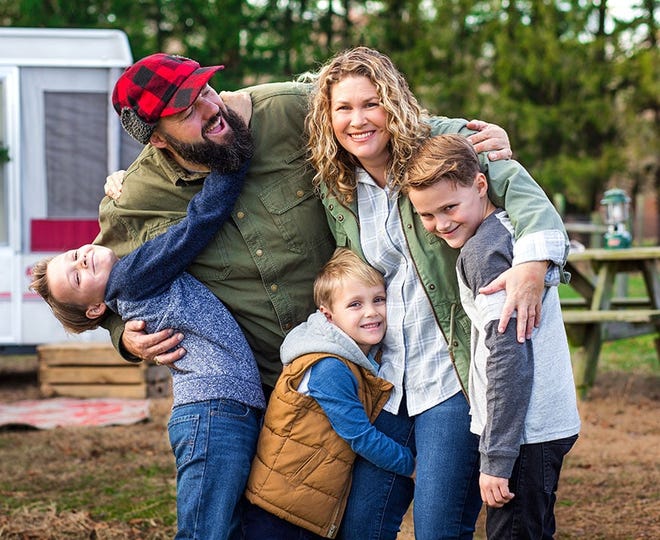
RVB: So, the RV Atlas came five years later?
Stephanie: What happened was – it’s hard to believe it – but this was really before there was a lot of information online. That’s true. So, what happened was when we bought this popup camper, we did not know where to camp. We had a coupon book from our dealership, and I was going through the coupon book and calling campgrounds to try to plan our first camping trip. I know that some people are like, ‘It’s not that long ago.’ But really that’s how it was 15 years ago.
We had a background in writing, and I had a background in tech because I as a tech teacher I did technology integration into classrooms. I was an early adopter and an Apple educator teaching kids how to use GarageBand and all of these different media-centric tech tools.
So, it was just kind of this, ‘Oh, this is an easy thing for me to use as an example.’ Blogger was around at the time, so I was just using our camping adventures almost as a model for a lot of this technology that I was teaching kids how to use in the classroom. And it just ended up all coming together.
At a certain point, we discovered that people we didn’t know were reading the blog – which was really weird for us. It was never a thing that we actually meant to do. Our aunts and uncles and friends and family were reading it, and a lot of people did blogs for that reason. It was like a personal travel blog for us. And then I’ll never forget one time looking at the statistics and it’s like, ‘A thousand people read this blog post? What’s going on here?’
Jeremy: When we realized people were actually reading the blog – which was called the lively little campers.com, it wasn’t even RV Family Travel Atlas yet – we got a little bit more serious about it at that point because people were finding it and discovering it. And I can’t emphasize what Stephanie said too much. We’d had no idea where to camp, and there were not a lot of great resources online about the RV lifestyle. Now, of course, there’s an abundance.
RVB: And you both have said all along that you never intended for the travel blog to blow up into what it has become today.
Stephanie: Very early on, I said I am not interested in being fabulous. I didn’t want it to be an influencer kind of thing. We want it to be useful. It’s the teacher in us. We just want it to provide value to people, to help people have amazing experiences by themselves, with their partners, with their families. That’s really what we wanted out of this. So, if we’re just bringing value to people’s lives with our books, with our podcast, we’ve accomplished what we set out to do.
Jeremy: I think that the secret to why we’ve endured 10 years lies in what Stephanie just said. It’s never just been about ‘look at us and how amazing our lives were,’ because that’s really hard to do over 10 years. That’s exhausting.
Stephanie and I joke all the time, our lives are boring a lot of the time. We have kids in school, and there’s times of the year when we’re out traveling like crazy and times of the year where the RV’s winterized, et cetera, et cetera.
But because the RV Atlas content was always partly about us, for sure, but also about all of our great correspondents from across the country and just about RV culture, RV content, having manufacturers on the show, having campground owners on the show… I feel like it’s endlessly interesting, where I just don’t think that Stephanie and I are endlessly interesting.
Frankly, a lot of the RV influencers burn out on that. They do it for a while and then they stop because it was just about a snapshot or a window of their lives for a certain period of time. But our show is about RV culture and camping culture, and those two things are endlessly fascinating, always changing, always something new, always new RVs, always new campgrounds, always new camping gear to check out.
So, I’m still so into it after 10 years, and I think that’s all part of why.
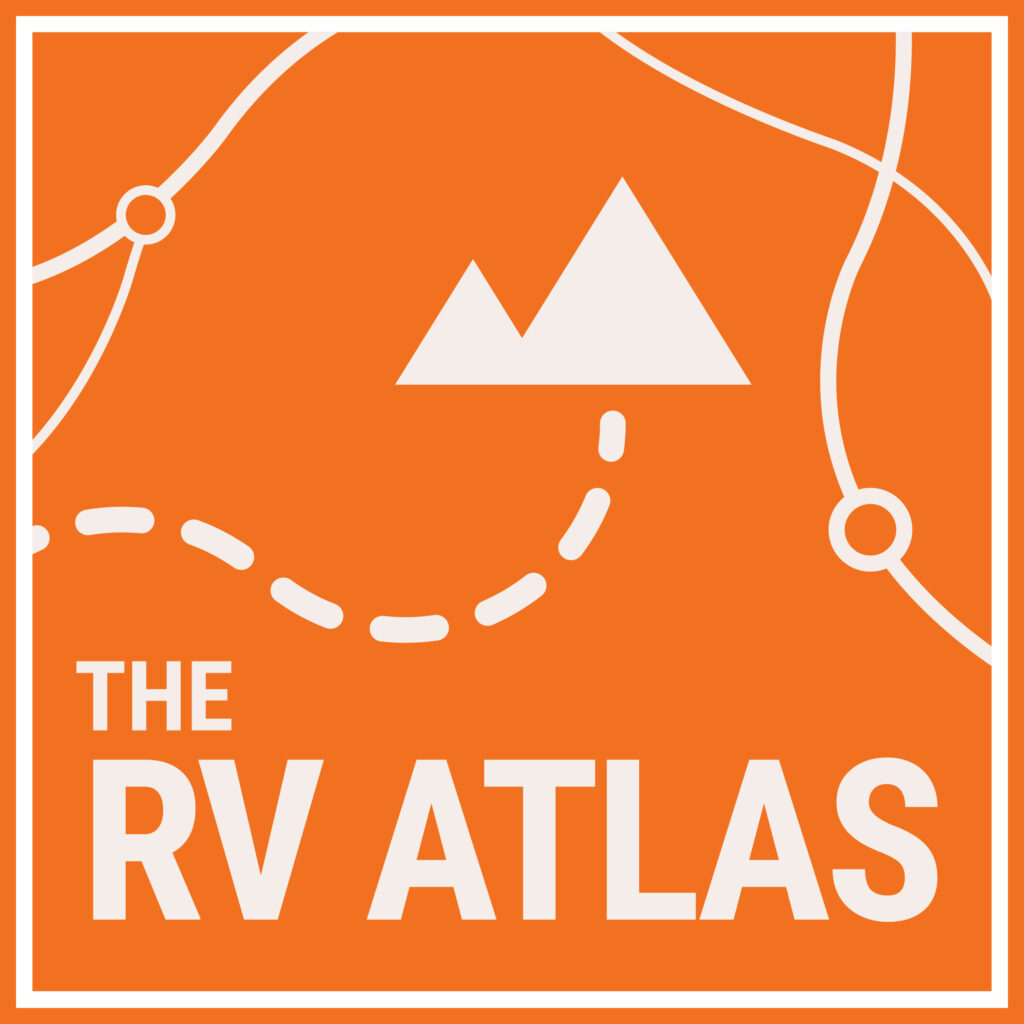
RVB: Tell us about the decision to leave your teaching careers to concentrate on RV Atlas full time.
Stephanie: Yeah, if I were to guess really quick, I’d say it was about a five-year journey – it wasn’t fast.
And that’s another thing about us is RV Atlas never went viral, right? There was never some moment where nobody knew us, and then all of a sudden everybody knew us. We just kept working for years and doing things that, like I said, in my estimation, were valuable to people that then they used over and over again.
But I think it was about a five-year journey to the start that we just talked about of a lot of this, and we really did have some experiences that pushed us to the edge in terms of the side hustle. So, we were offered our first book contract in 2015, and we were also working with companies that we’ve worked with now for over a decade. And I looked at Jeremy and I said, ‘Look, we had a good run. We’ve been very successful beyond what we expected, so we either go in all the way with one of us’ – meaning that I was going to stop teaching and work at this full time – ‘or we close the books on this.’ We had three kids under five in that range at the time. We had two full-time jobs, and at this point, the RV Atlas had become another full-time job that we were both managing between us with all the work.
He knew I was serious. I was tired. So, he said, ‘Okay, yeah, let’s send in your resignation letter.’
Jeremy: There’s lots of twists and turns here, but it did take another several years before I quit my teaching job. And that’s actually kind of a fascinating story. I had taught at the school for 17 years. I told my principal in February of 2020 that I wouldn’t be coming back the next year because our business was doing well. It was thriving; lots of work in the RV industry.
And soon after that the pandemic hit and the RV manufacturers all shut down.
I was literally lying in bed, sweating at night, thinking this was the dumbest decision I’ve ever made in my life. I’m going to need to go back to my principal and humbly say, ‘I need the job,’ because I had no idea that the boom was coming with the RV industry.
They were all shut down. I was actually afraid to call our sponsors and talk to them. I was worried some of them would say, ‘Oh, we got to cut you.’ But that didn’t happen, thankfully.
And then the boom happened, and it’s been such a crazy time in the RV industry and the camping industries. I think even though some aspects of that have slowed down, I feel like we’re just catching our breath now from how busy and exciting things were through the pandemic.

